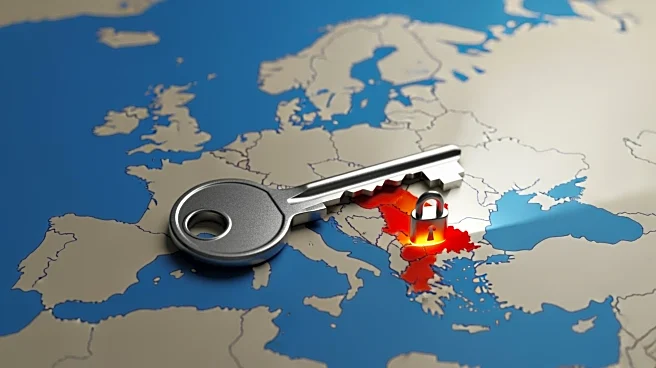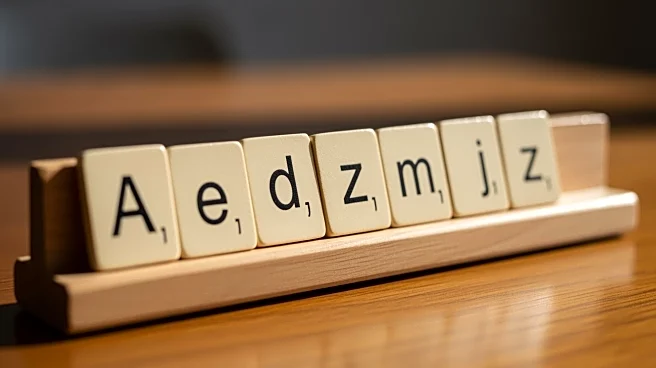What's Happening?
Moldova's ruling Party of Action and Solidarity (PAS) has secured an absolute majority in the recent parliamentary elections, strengthening its mandate to pursue EU membership by 2028. Victor Neculai,
Vice-President of PAS Youth, emphasized the importance of transformative reforms across all 33 negotiating chapters, including agriculture, energy, security, and digitalization. The PAS-led government aims to align Moldova fully with EU acquis, preparing for the Accession Treaty by 2028. Despite the challenges, Moldova has made rapid progress, completing the bilateral screening process in just 15 months. However, Moldova's EU accession process is linked to Ukraine's, which has faced delays due to Hungary's veto. The European Council President is advocating for a shift from unanimity to qualified majority voting to expedite the process.
Why It's Important?
Moldova's pursuit of EU membership is crucial for its political and economic future, offering stability and integration into the European community. The PAS's decisive victory provides a strong mandate for implementing necessary reforms, which are essential for meeting EU standards. However, the coupling of Moldova's accession process with Ukraine's poses challenges, as political blockades could delay progress. The EU's support and the potential shift to qualified majority voting could accelerate Moldova's accession, enhancing its prospects for joining the EU by 2028. Successful integration would bolster Moldova's economy, improve governance, and strengthen its resilience against external influences.
What's Next?
Moldova will continue its reform efforts, focusing on aligning its legislation with EU standards across various sectors. The government aims to minimize transitional periods to expedite the closure of negotiation chapters. The financial burden of reforms, particularly in agriculture and the environment, remains a challenge. Moldova's accession process is contingent on Ukraine's progress, and any delays could frustrate Moldovan society. The EU's decision on decoupling Moldova's accession from Ukraine's remains uncertain, but efforts to accelerate the process continue. The next parliamentary elections in 2028 will be pivotal, as Moldova aims to be ready for EU membership by then.
Beyond the Headlines
Moldova's EU accession journey highlights the geopolitical dynamics in Eastern Europe, with Russian interference posing a significant challenge. The PAS's commitment to EU integration reflects Moldova's strategic shift towards Western alliances, seeking stability and development. The coupling of Moldova's accession process with Ukraine's underscores the interconnectedness of regional politics, with potential implications for EU enlargement policies. Moldova's progress serves as a testament to the transformative power of EU integration, offering hope for other aspiring member states facing similar challenges.










